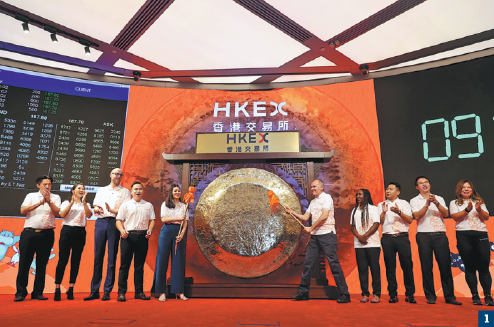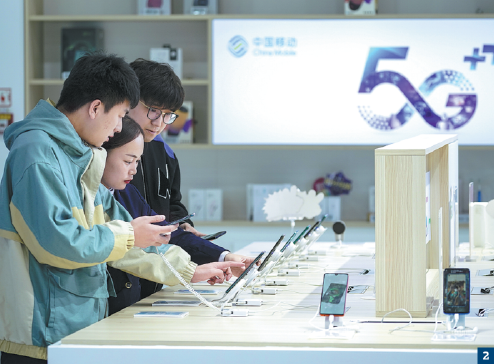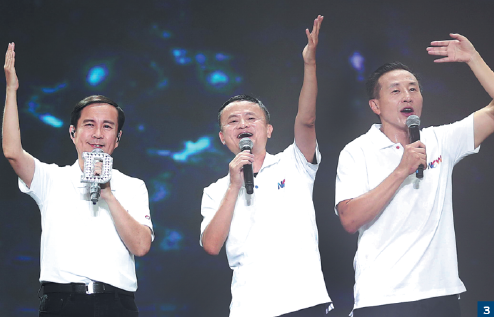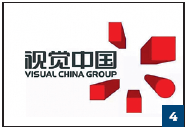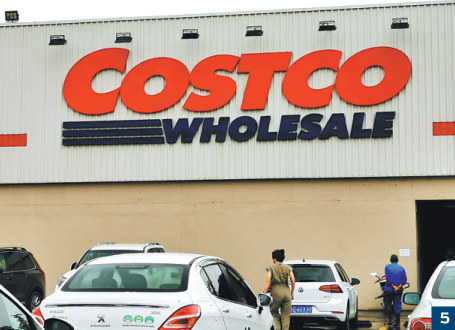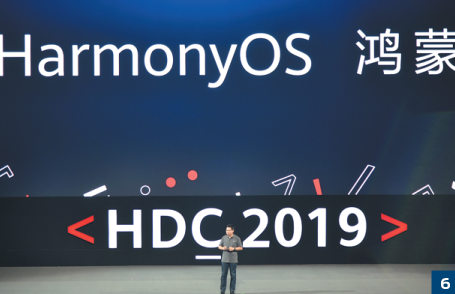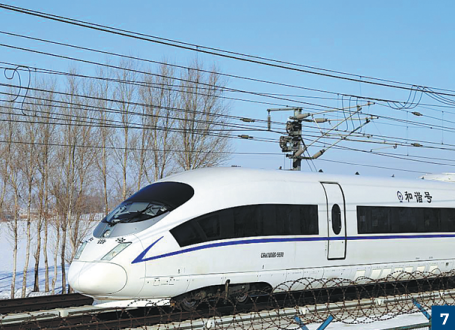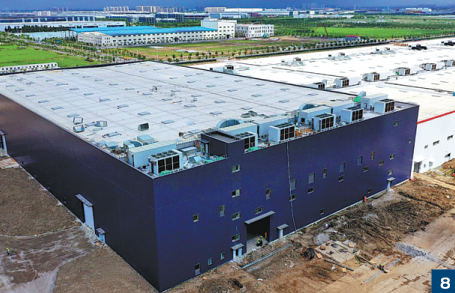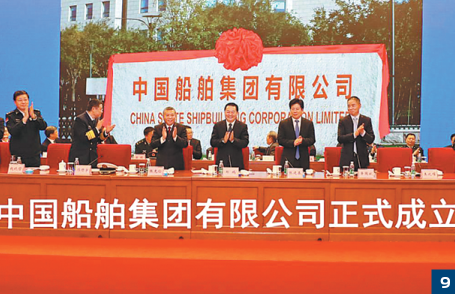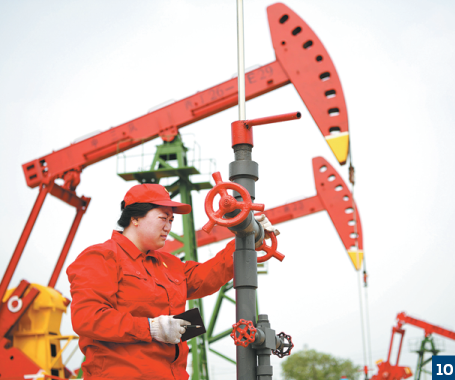Editor's note: This year, China witnessed several corporate milestones that made global headlines. As the year 2019 draws to a close, we present here a round-up of the top 10 stories, based on the most accessed business content on China Daily's official website m.yibaidns.com.
1. Alibaba makes Hong Kong debut
Alibaba Group Holding Ltd debuted on the Hong Kong stock exchange on Nov 26, five years after the Chinese internet giant first went public in New York in 2014. Alibaba's Hong Kong-listed shares jumped 6.25 percent above its issue price of HK$176 ($22.60) per share in the morning before hitting an early intraday high of HK$189.5. They closed 6.59 percent up at HK$187.60. The company said it raised HK$101.2 billion by selling 575 million new shares to investors.
2. Telecom majors roll out 5G data plans
China's three major telecom operators on Oct 31 launched their long-awaited 5G service plans. China Mobile, China Unicom and China Telecom, in simultaneous moves, unveiled their monthly 5G plans with prices ranging from 128 yuan ($18.26) to 599 yuan. The move means consumers can now pay to access superfast 5G speeds as more than 86,000 5G base stations have already entered service in China, covering 50 cities nationwide, including Beijing, Shanghai, Guangzhou and Shenzhen.
3. Alibaba chairman Jack Ma steps down
Jack Ma, founder of e-commerce giant Alibaba, retired as Alibaba's executive chairman on Sept 10, one year after he announced his resignation plan. Ma, a former English language teacher, co-founded Alibaba with 17 partners in an apartment in Hangzhou. This year marks the 20th anniversary of the company's founding. Alibaba said Ma would remain on the board of directors until 2020. Daniel Zhang, 47, who had been acting as chief executive officer since 2015, took the helm.
4. Costco opens first store on Chinese mainland
The world's second-largest retailer, Costco Wholesale Corp, opened its first brick-and-mortar store on the Chinese mainland in Shanghai on Aug 27. The 14,000-square-meter store was inundated on its first day, with customers spending up to two hours queuing at checkouts or waiting three hours to find a spot in the 1,200-bay parking lot. Costco membership costs 299 yuan a year.
5. Huawei unveils its own operating system
Huawei Technologies Co unveiled its much-anticipated in-house operating system Harmony OS on Aug 9. Harmony will be able to support a wide range of application scenarios, including smart TVs, automobiles and wearables, said Yu Chengdong, CEO of Huawei's consumer business group. The senior executive said Harmony can be used in its smartphones. But Android is still Huawei's preferred choice for handsets if the company is allowed to use it. "But when Android is not available, Harmony can be applied immediately to smartphones. Harmony is ready," Yu added.
6. China State Railway Group inaugurated
China Railway Corporation has been renamed China State Railway Group Co Ltd, a wholly State-owned enterprise with registered capital of more than 1.73 trillion yuan, according to a statement from the company on June 18. The company is run by the central government, and the Ministry of Finance performs investor duties on behalf of the State Council. The company will be responsible for the national railway system's operation, construction and safety, as well as nonprofit transport jobs.
7. Tesla breaks ground on Gigafactory in Shanghai
Tesla's 50-billion-yuan Shanghai Gigafactory broke ground in the Lingang Special Area on Jan 7.
The plant is the company's first factory outside the United States and the first automobile production project wholly owned by foreign capital in China. With an initial weekly production of about 3,000 Model 3 electric vehicles, the factory is designed with an annual capacity of 500,000 electric cars.
8. World's largest shipbuilder sets sail
China Shipbuilding Corp was officially unveiled on Nov 26 in Beijing as the world's largest shipbuilder. The giant corporation was created through the merger of China State Shipbuilding Corp and China Shipbuilding Industry Corp, the country's two biggest shipbuilders by production capacity. The new company has about 310,000 employees, 147 subsidiaries, including manufacturing complexes nationwide and 35 institutes as well as total assets worth 790 billion yuan.
9. Websites suspended for multiple violations
The websites of Visual China Group and IC Photo, which provide visual content, were required to suspend services for rectification on Dec 10 due to multiple violations.
The websites were engaged in internet news information services without obtaining authorized licenses, according to the Cyberspace Administration of China. They also carried out cooperation involving internet news and information services with overseas enterprises without security assessment.
10. National oil, gas pipeline firm unveiled
China officially launched its long-planned national oil and gas pipeline network company on Dec 9, as part of the country's ongoing oil and gas reforms to help meet the nation's increasing energy needs.
Combining the pipeline assets of the country's big three State-owned energy giants-PetroChina, Sinopec and CNOOC-the creation of the new company will help foster a more competitive environment for all players in the sector.
